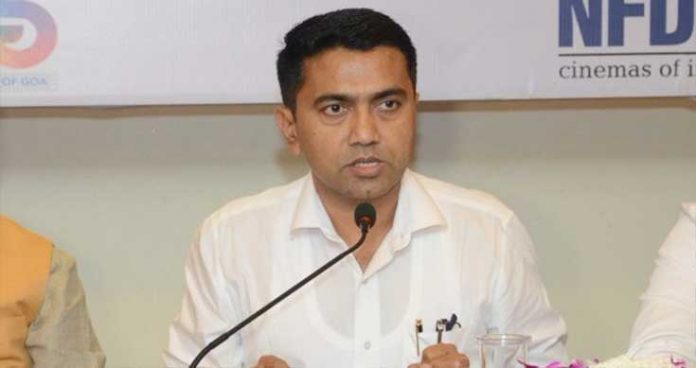God himself can’t give government jobs to all aspirants even if he wished to do as such, Goa CM Pramod Sawant stated on Saturday.
Sawant, while talking during a web conference with panchayat representatives after virtually launching his government’s ambitious ‘Swayampurna Mitra’ outreach initiative, said: “If tomorrow even if God becomes the CM, it is not possible.”
Under the ‘Swayampurna Mitra’ initiative, gazetted government officials are required to visit panchayats and review the ground-level implementation of state plans, set up a comprehensive document on resources of the village, and set forth recommendations to make the village independent.
Sawant stated: “Their (unemployed) households should also have Rs 8,000 to Rs 10,000 income per month There are so many jobs in Goa that outsiders get cracking on… our Swayampurna Mitras will also coordinate works like arranging suitable minor jobs for the rural unemployed.”
The state’s unemployment rate is as of now fixed at 15.4 percent. Goa CM Pramod Sawant recently had communicated worry over rising joblessness while talking at a Confederation of Indian Industries function. Unemployment in India as a whole has been an issue for a very long time. The situation got even worse when the COVID-19 pandemic hit the entire world.
In September of 2020, India witnessed an unemployment rate of more than six percent. This was a huge improvement from the earlier months. A harming impact on an economy as large as India’s caused because of a complete lockdown was inevitable. Unemployment went up to 24 percent on May 17, 2020. This was likely an outcome of a decline in demand just as the disturbance of the workforce witnessed by organizations. Moreover, this caused a GVA loss of over nine percent for the Indian economy that month.
Among February and April 2020, the portion of households that witnessed a fall in pay shot up to almost 46 percent. Inflation rates on commodities and services including food items and fuel were expected to rise in the not-so-distant future. Social distancing brought about job losses, particularly those Indian societies with lower economic strata. Many households ended domestic help services– basically a chaotic monthly-paying paying job. Most Indians invested a lot of energy in participating in household chores themselves, making it the most broadly practiced lockdown action.
The most destructive effect of the infection and the lockdown had been on the economically backward societies, with restricted access to appropriate healthcare and different resources. This prompted the government to dispatch different projects and campaigns to help sustain these households.


